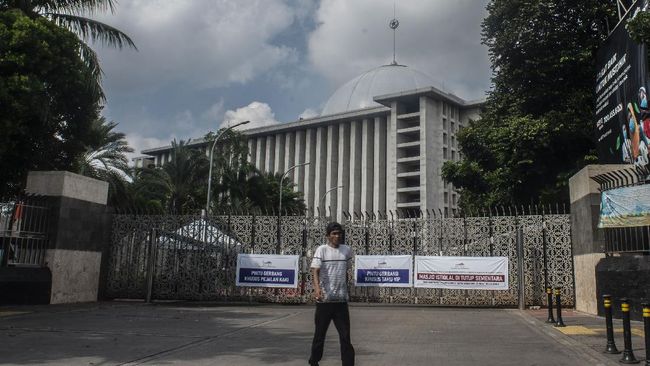Jakarta, CNN Indonesia — The Ministry of Home Affairs has changed the rules for places of worship of all religions which were originally closed during the Java Bali Emergency PPKM period to only eliminate religious activities.
This change is stated in the Instruction of the Minister of Home Affairs Number 19 of 2021 concerning the Third Amendment to the Instruction of the Minister of Home Affairs Number 15 of 2021 concerning the Enforcement of Restrictions on Emergency Community Activities for Corona Virus Disease 2019 in the Java Bali Region.
In a copy of the document obtained by CNNIndonesia.com from the spokesperson for the Ministry of Maritime Affairs and Investment, Jodi Mahardi, it is stated that the changes are related to places of worship for all religions and wedding receptions.
The Director General of Regional Administration of the Ministry of Home Affairs, Safrizal ZA, also confirmed this new rule.
The regulation states that places of worship, such as mosques, prayer rooms, churches, temples, temples, and pagodas and other places of worship that function as places of worship do not hold congregational worship or religious activities during the implementation of Emergency PPKM.
“And optimizing the implementation of worship at home,” reads a copy of the regulation, Saturday (10/7).
In the previous regulation, namely Inmendagri number 15 of 2001, it was stated that “places of worship (mosques, prayer rooms, churches, temples, temples and pagodas as well as other public places that functioned as places of worship) were temporarily closed”.
In addition, the latest regulation also prohibits wedding receptions at all during the Emergency PPKM.
“The implementation of wedding receptions is abolished during the implementation of Emergency PPKM,” the new regulation reads.
Previously in the Instruction of the Minister of Home Affairs Number 15 of 2021 it was stated that “the wedding reception was attended by a maximum of 30 (thirty) people by implementing stricter health protocols and not eating at the reception, food provision was only allowed in a closed place and to be taken home” .

